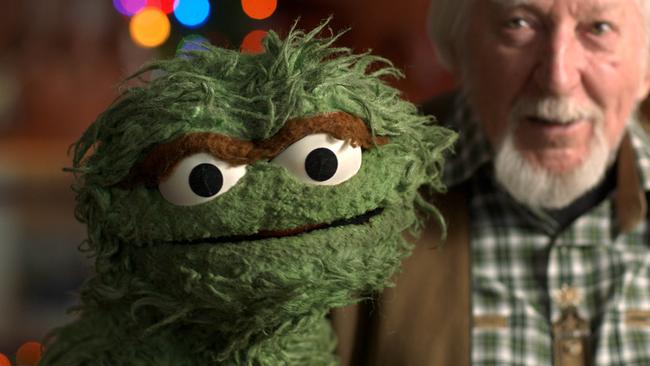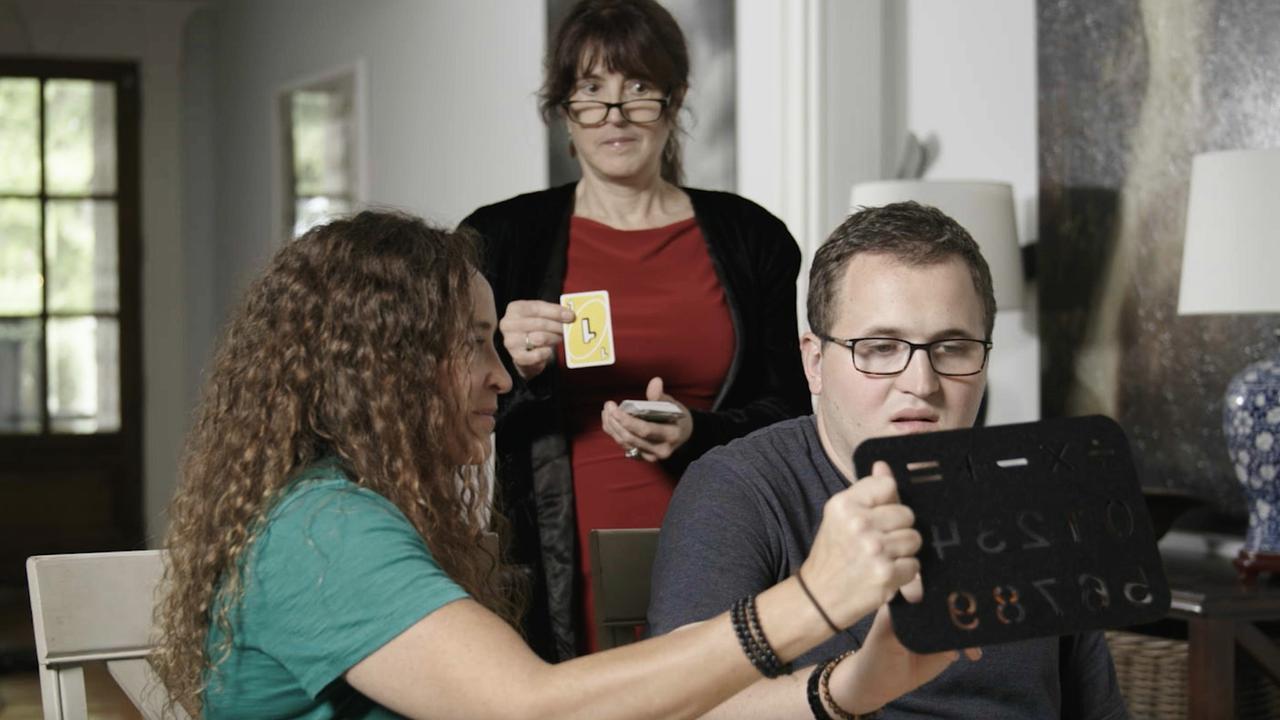Moonfall: life collides with lunacy
The moon loses her orbit and starts falling towards Earth in this visually-spectacular film starring Halle Berry.

Moonfall (M)
In cinemas
★★★½
As the outer-space thriller Moonfall is directed by the box office dazzling “master of disaster” Roland Emmerich (Independence Day, Godzilla, The Day After Tomorrow) let’s think outside the box, as one character advises, and start with the poet T.S. Eliot.
In his brilliant, bleak 1911 poem Rhapsody on a Windy Night, we are told, “The moon has lost her memory.” In Moonfall, she misplaces a lot more than that: she loses her orbit and starts falling towards Earth.
The implications of this lunar lurch are bad: immediate climate catastrophes, for starters, and that’s before the city-sized shards of moon split off and head south.
The visual effects are spectacular, on Earth and in space. With a budget of $US140m, this is one of the most expensive independent films yet made, thanks to significant backing from Chinese entertainment companies.
“Everything we thought we knew about the nature of the universe has just gone out the window,’’ declares NASA deputy director Jo Fowler (Oscar winner Halle Berry).
The melodramatic dialogue is one of the pleasures of this fast-paced, 130-minute movie, so I’ll throw in a few more examples.
“If there was still a Houston,’’ says self-taught moon expert JC Houseman (an excellent John Bradley, best known as the timid but brave Samwell Tarley in Game of Thrones), “they’d be freaking out right now.”
When JC, who runs a blog, asks one of his few followers who or what has caused the moon to go rogue, the reply is “Oswald did it”. That’s the thinking outside the box moment.
And when Fowler chats with a NASA veteran (Donald Sutherland) who was involved in the 1969 moon landing, she asks if he’s telling her the Apollo 11 mission is “the biggest cover-up in human history”, he smiles, says “Maybe” and returns to the loaded revolver on his desk.
Out to save the Earth from obliteration are Fowler and disgraced astronaut Brian Harper (Patrick Wilson), with JC by their side just in case he happens to be right.
The movie opens with the 2011 mission that caused Harper’s fall from public grace. At the time, he was the commander and she was his navigator.
The premise of this entertaining film is that the moon is behaving badly and various people have crazy ideas as to why and what to do about it.
Who is the craziest? JC, who believes the moon is an artificial megastructure built by aliens; Fowler and Harper, who want to space shuttle to the stroppy satellite and talk some sense into it; or the military chiefs, who blame it on the moon, as the Aussie rock band The Cruel Sea put it, and think the only option is to nuke the extraterrestrial terrorist?
When the answer arrives as to why the moon is doing what it’s doing, it shows that the loopiest of them all is the eccentric German director of this amusing space oddity. It’s worth waiting for. The final scenes include a neat nod to the original Planet of the Apes.
There are also lots of moments that speak to our Covid times: “moon terror” hoarding of groceries, civil unrest, soldiers on the streets.
In an interview with Deadline.com, the director, who co-wrote the script, was asked if he saw life imitating art. He laughed and responded: “Yes, everyone tells me the pandemic feels like a never ending Roland Emmerich movie.”
-
India sweets and spices (M)
In cinemas
★★★½
The American comedy-drama India Sweets and Spices, centred on Indian expatriates in the US, recalls The Sopranos, in ways expected and unexpected.
First, it is set in suburban New Jersey. The all-mod-cons home of the main family, the Kupars, is similar to Tony and Carmela’s, though with a bigger pool (but without visiting ducks).
Second, the Kupars have a straight As daughter, Alia (Sophia Ali, Dr Dahlia Qadri in Grey’s Anatomy). She is at college in Los Angeles and, like Meadow Soprano, doesn’t believe the old way, the family-is-always-right way, is the best way.
Her parents are not gangsters – Ranjit (Adil Hussain) is a doctor, as his daughter hopes to be, and Sheila (Manisha Koirala) is a homemaker – and nor are their friends.
All are successful and well-off. Yet the men are also ruthless in their own ways. And the women, like Carmela, have to turn a blind eye to men behaving badly.
“I became what everyone wanted me to be: a wife, a mother, quiet,’’ Sheila tells her daughter.
And this is the Sheila we meet at the outset. She is strict with her children (Alia has two school-age siblings) and a snob towards those beneath her station in life.
Her husband seems the laid-back one, the parent who lets his kids some slack, the doctor who sneaks off for rounds of golf.
However, neither Sheila nor Ranjit are who they appear to be on the surface. Their marriage was arranged. “I don’t know if they ever loved each other,’’ their daughter says.
This 101-minute film is written and directed by Geeta Malik, herself the daughter of successful Indian immigrants.
She grew up in Colorado and the script, which won a screenwriting award before being made into a film, draws on her own experiences. The title is the name of the local Indian store, India Sweets & Spices, where all the expats go to fill their pantries. When a new couple, the Duttas, take over the shop, the past, the home country, comes smashing into New Jersey.
It turns out Mrs Dutta (Deepti Gupta) and Mrs Kapur went to university together in Delhi. What they did there is something Sheila has hidden from everyone, including her family.
What follows makes this movie more complex that its rom-com set up, which has Alia returning home for the summer break, being pursued by a handsome, wealthy young man who will have a real elephant at his wedding but falling for Varun Dutta (Rish Shah), who works in the shop with his parents.
“Who’s next?’’ her father asks. “Our dry cleaner, our gardener?” He’s teasing her, but that doesn’t mean he would have voted for a shopkeeper’s daughter like Margaret Thatcher.
This is part of the story, the ifs and buts of youthful love and flirtation, but the real story is about the older generation, particularly Sheila.
At its centre is patriarchal power and the willingness to accept it, for the benefits it brings, right up until the point where it becomes too much to bear.
Interestingly, Koirala comes from a prominent Nepalese family. Her father was a government minister and his father was prime minister. She chose to go her own way. That’s the sort of decision her character Sheila has to face more than once in this movie, as does her daughter.
-
Street Gang: How We Got To Sesame Street (pg)
In cinemas and on digital release (streetgangmovie.com)
★★★★
This account of the creation and development of the children’s television show Sesame Street is one of the most uplifting movies I have seen.
It is full of love, smiles, laughs, hope and a passion to do the unthinkable: combine entertainment and education.
Directed by Marilyn Agrelo, this 106-minute documentary draws on interviews with the people who made Sesame Street, which premiered in 1969, as well as file footage of those who have left us, including Jim Henson, the mind behind The Muppets.
There is wonderful off-camera repartee between the people with their hands, and whole bodies in the case of Caroll “Big Bird” Spinney, inside the puppets.
In Street Gang: How We Got To Sesame Street, the moments between Henson (Ernie) and Frank Oz (Bert) are beautiful.
They are markedly different men united by a commitment to their art.
“You believe Bert as much as if he were Sir Laurence Olivier,” says co-creator and long-time director Jon Stone. The music is a treat, especially for the clips of famous musicians, such as BB King, Loretta Lynn, James Taylor and Dizzy Gillespie, singing and dancing down Sesame Street.
The absolute highlight is being taken back to Johnny Cash singing Nasty Dan – “He’d jump for joy when a little boy would trip and fall” – with Oscar the Grouch (Spinney) cheering in approval. (One cast member reckons that by being both the congenial Big Bird and curmudgeonly Oscar the Grouch, Spinney “saved a lot of money in therapy”.)
Street Gang covers the controversies, such as the southern state of Mississippi banning the show, with its integrated cast, and the sadnesses, such as the death of Will Lee, better known as Mr Hooper.
Dealing with the challenge of how to tell preschool kids that someone has died is followed, in true Sesame Steet tradition, with a bloopers reel, which is a must-see.
Asked what the show was all about, Stone said, “Happiness”. If you want to feel good about the world and the people in it, this is the movie for you.




